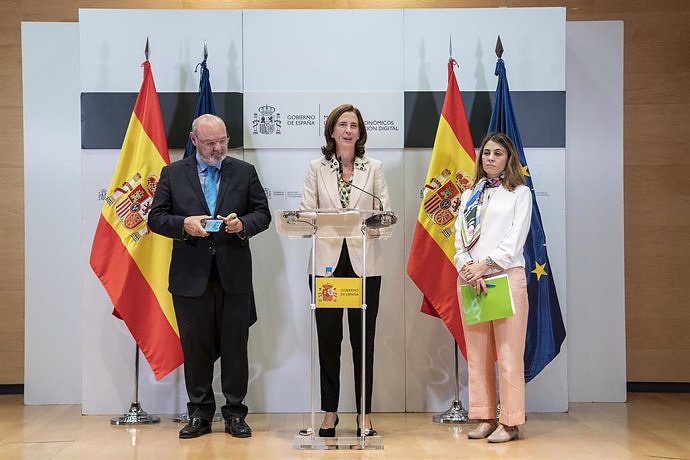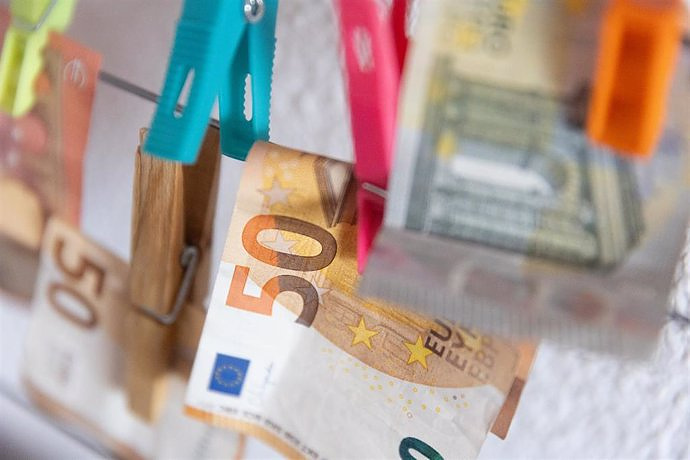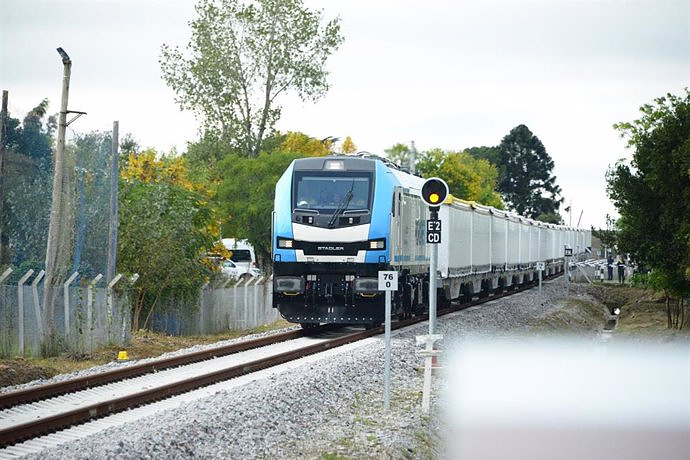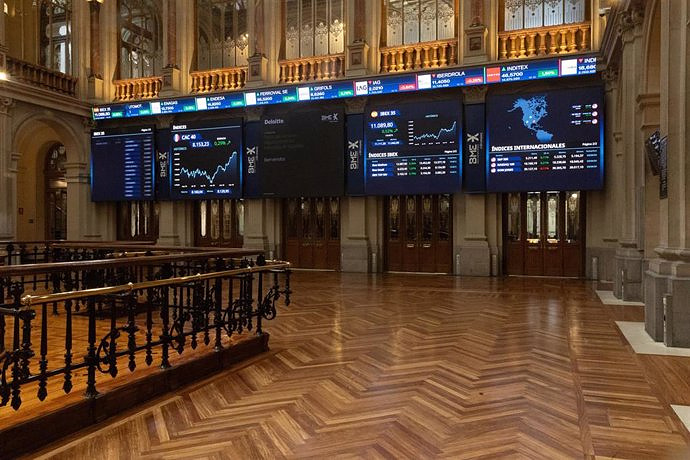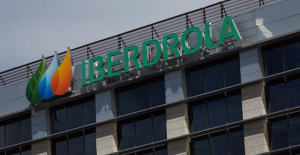The German ambassador to Spain admits that the war has "accelerated" the changes and assumes that "it will not be the easiest winter"
MADRID, 3 Oct. (EUROPA PRESS) -
The German ambassador to Spain, Maria Gosse, defends the EU's ability to respond as a bloc to the challenge posed by Russia's invasion of Ukraine and, despite the reluctance of certain countries to extend sanctions, believes that each Russian President Vladimir Putin's "nonsense" makes it possible to consolidate the common European project.
Gosse affirms that already in the COVID-19 pandemic it became clear that citizens, in contexts of crisis, "are more willing to accept common policies and decisions and even to ask for it". Now, this trend is observed "in a more intense way", he points out in an interview with Europa Press.
The EU is heading towards the eighth package of sanctions against Russia as a result of a unity that, as Grosse acknowledges, "did not seem possible a couple of years ago". Faced with "individual interests", the "commons" have prospered as a strategy to advance, especially in the long term.
The successive rounds of punishments have also revealed the differences between the member states, but Gosse does not perceive a risk of rupture. In fact, he anticipates that "with every nonsense we see Putin doing", such as the "fake referendums" in eastern Ukraine or the constant "threats", it will "reinforce the unity of Europe".
In this sense, he defends the specific commitment assumed by Berlin, which on October 25 will host an expert conference that, in the presence of Scholz and the President of the European Commission, Ursula Von der Leyen, will study the future reconstruction of Ukraine.
"Ukraine is going to receive our help in all the sectors it needs: economic, political, cultural and, of course, also military," says the ambassador, when questioned about the special demand made on Germany in recent months by the president. Ukrainian, Volodimir Zelensky.
Gosse defends that the Government of Olaf Scholz has been "firm" in its position in favor of Ukraine, as would have been shown after the decision to "totally" change the security and defense doctrine and to reduce dependence on fossil fuels from From Russia.
This "accelerated" conversion has already resulted in Germany not receiving most of its gas from Russia. Gosse stresses that "the supply is not in danger" and points out that some calculations predict that in March 2023 the gas stored will be at levels similar to those of a year earlier, especially if savings are boosted.
"Surely it will not be the easiest winter," he admits, assuming that among the collateral effects of the new context "it cannot be avoided" that prices rise.
The German government has promoted three batches of aid with which it aspires to "leave no one behind", with reforms aimed at families and companies that may now be in a situation of greater vulnerability.
Grosse acknowledges that, in Germany, there is special "concern" with far-right movements for the history of the country itself, but he avoids assessing the political future in Italy after Giorgia Meloni's victory. "We have to observe what happens," she adds.
It does detect "signs" from future leaders who are at least committed to maintaining Italy as a "Europeanist" country, in line with the state position that the various Italian administrations have been maintaining for decades.
Grosse affirms that, in any case, the party structure of a given EU country cannot be extrapolated to another Member State, which in turn means that the success of the extreme right in Italy cannot be compared with the potential rise of similar movements in other contexts.

 Exploring Cardano: Inner Workings and Advantages of this Cryptocurrency
Exploring Cardano: Inner Workings and Advantages of this Cryptocurrency Seville.- Economy.- Innova.- STSA inaugurates its new painting and sealing hangar in San Pablo, for 18 million
Seville.- Economy.- Innova.- STSA inaugurates its new painting and sealing hangar in San Pablo, for 18 million Innova.- More than 300 volunteers join the Andalucía Compromiso Digital network in one month to facilitate access to ICT
Innova.- More than 300 volunteers join the Andalucía Compromiso Digital network in one month to facilitate access to ICT Innova.-AMP.- Ayesa acquires 51% of Sadiel, which will create new technological engineering products and expand markets
Innova.-AMP.- Ayesa acquires 51% of Sadiel, which will create new technological engineering products and expand markets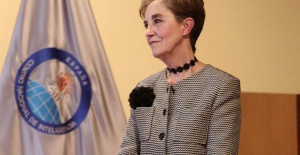 The prosecutor supports shelving the investigation into the former director of the CNI for espionage with Pegasus
The prosecutor supports shelving the investigation into the former director of the CNI for espionage with Pegasus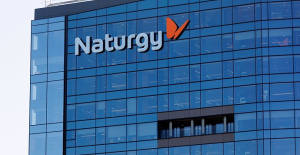 The Government affirms that it has the regulatory instruments to defend strategic interests in Naturgy
The Government affirms that it has the regulatory instruments to defend strategic interests in Naturgy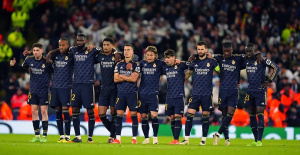 Lunin raises the epic of the 'Fifteenth'
Lunin raises the epic of the 'Fifteenth'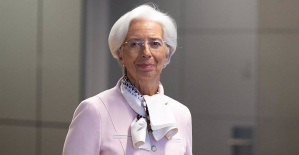 Lagarde (ECB) assures that the eurozone is showing "clear signs of recovery"
Lagarde (ECB) assures that the eurozone is showing "clear signs of recovery" How Blockchain in being used to shape the future
How Blockchain in being used to shape the future Not just BTC and ETH: Here Are Some More Interesting Coins Worth Focusing on
Not just BTC and ETH: Here Are Some More Interesting Coins Worth Focusing on LIFE SPOT manages to develop new green treatments that eliminate groundwater contamination
LIFE SPOT manages to develop new green treatments that eliminate groundwater contamination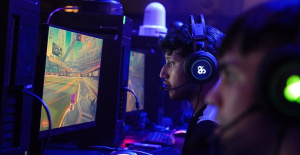 València Game City is born to promote the video game industry and position this city as a leader in the sector
València Game City is born to promote the video game industry and position this city as a leader in the sector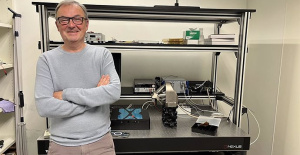 A team of UPV and iPRONICS manufactures the first programmable and multifunctional photonic chip on the market
A team of UPV and iPRONICS manufactures the first programmable and multifunctional photonic chip on the market 'Science and Reeds' returns with talks about "the mystery of the lost socks" or the vinegar fly
'Science and Reeds' returns with talks about "the mystery of the lost socks" or the vinegar fly A million people demonstrate in France against Macron's pension reform
A million people demonstrate in France against Macron's pension reform Russia launches several missiles against "critical infrastructure" in the city of Zaporizhia
Russia launches several missiles against "critical infrastructure" in the city of Zaporizhia A "procession" remembers the dead of the Calabria shipwreck as bodies continue to wash up on the shore
A "procession" remembers the dead of the Calabria shipwreck as bodies continue to wash up on the shore Prison sentences handed down for three prominent Hong Kong pro-democracy activists
Prison sentences handed down for three prominent Hong Kong pro-democracy activists ETH continues to leave trading platforms, Ethereum balance on exchanges lowest in 3 years
ETH continues to leave trading platforms, Ethereum balance on exchanges lowest in 3 years Investors invest $450 million in Consensys, Ethereum incubator now valued at $7 billion
Investors invest $450 million in Consensys, Ethereum incubator now valued at $7 billion Alchemy Integrates Ethereum L2 Product Starknet to Enhance Web3 Scalability at a Price 100x Lower Than L1 Fees
Alchemy Integrates Ethereum L2 Product Starknet to Enhance Web3 Scalability at a Price 100x Lower Than L1 Fees Mining Report: Bitcoin's Electricity Consumption Declines by 25% in Q1 2022
Mining Report: Bitcoin's Electricity Consumption Declines by 25% in Q1 2022 Oil-to-Bitcoin Mining Firm Crusoe Energy Systems Raised $505 Million
Oil-to-Bitcoin Mining Firm Crusoe Energy Systems Raised $505 Million Microbt reveals the latest Bitcoin mining rigs -- Machines produce up to 126 TH/s with custom 5nm chip design
Microbt reveals the latest Bitcoin mining rigs -- Machines produce up to 126 TH/s with custom 5nm chip design Bitcoin's Mining Difficulty Hits a Lifetime High, With More Than 90% of BTC Supply Issued
Bitcoin's Mining Difficulty Hits a Lifetime High, With More Than 90% of BTC Supply Issued The Biggest Movers are Near, EOS, and RUNE during Friday's Selloff
The Biggest Movers are Near, EOS, and RUNE during Friday's Selloff Global Markets Spooked by a Hawkish Fed and Covid, Stocks and Crypto Gain After Musk Buys Twitter
Global Markets Spooked by a Hawkish Fed and Covid, Stocks and Crypto Gain After Musk Buys Twitter Bitso to offset carbon emissions from the Trading Platform's ERC20, ETH, and BTC Transactions
Bitso to offset carbon emissions from the Trading Platform's ERC20, ETH, and BTC Transactions Draftkings Announces 2022 College Hoops NFT Selection for March Madness
Draftkings Announces 2022 College Hoops NFT Selection for March Madness




